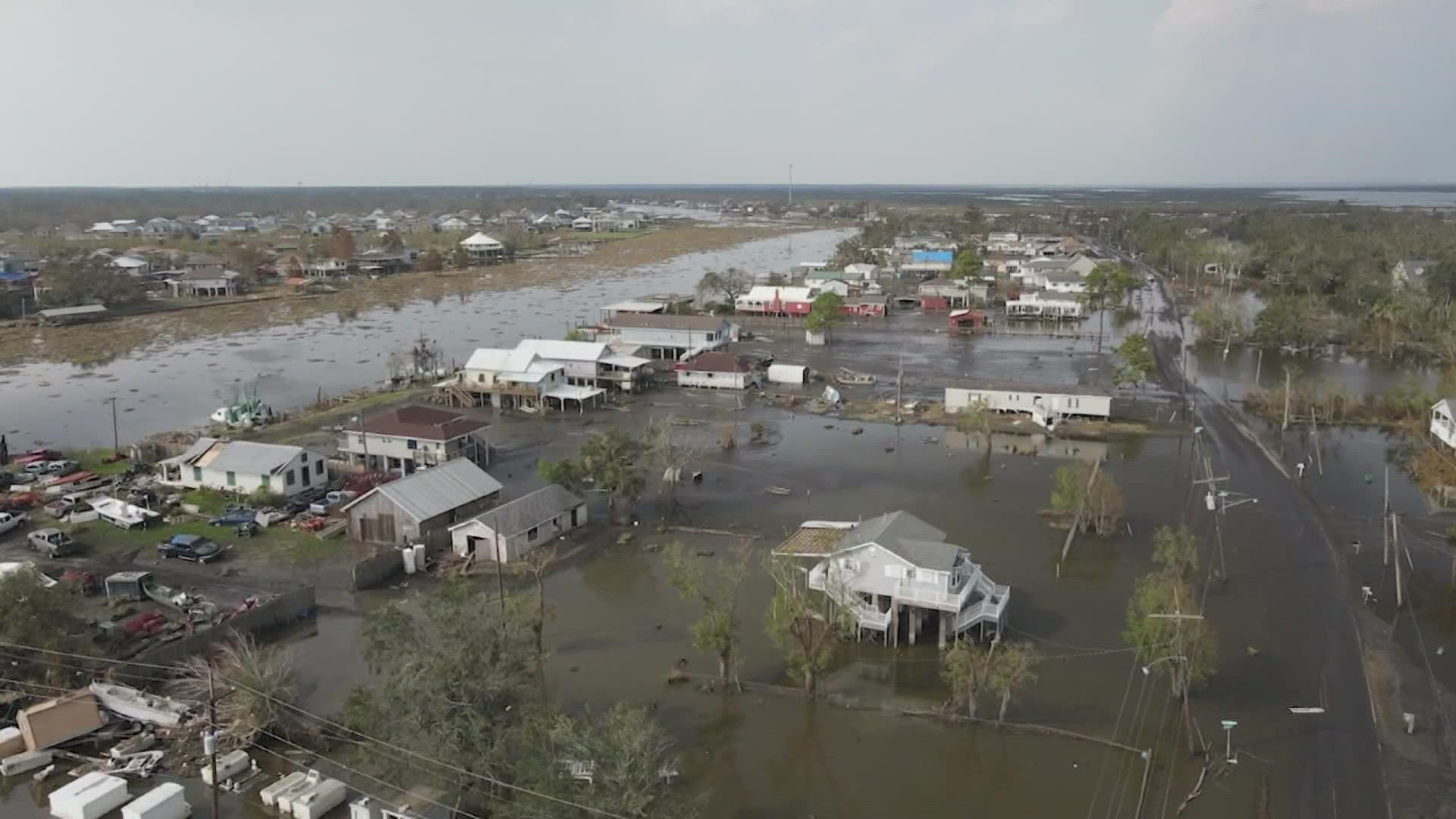BELLE CHASSE, La. — Property owners across Louisiana are bracing for skyrocketing flood insurance costs.
Norris Babin built his house in the Woodlands subdivision in Belle Chasse 25 years ago.
He says his National Flood Insurance Program policy will go from nearly $600 to more than $3,500 a year over time.
“Keep in mind, mine is six-times higher and I’m in the best category,” Babin said. “I’m in what used to be called an X zone. If you lived outside the hurricane protection levee, your policy might be going up to $6,000 to $10,000 a year.”
Tuesday, parish presidents from across the New Orleans region gathered in support of federal legislation that would press pause on FEMA’s new Risk Rating 2.0.
The revamped system prices insurance for each property individually rather than by flood zone. It considers things such as how close the property is to water, the height of the land underneath the home, square footage and how often the street has flooded in the past.
Parish leaders are concerned the cost will soon be out of reach for many families, particularly those living in flood-prone areas.
“We are safer now than we have ever been since Hurricane Katrina with the billions upon billions of dollars in investment that the federal government has made,” St. Charles Parish President Matt Jewell said. “Now the federal government is taking a look at their own investments and saying that they don’t matter anymore.”
“We are going to be communities with uninsured homes and none of us want that as parish presidents,” Jefferson Parish President Cynthia Lee Sheng said. “None of us want that. That is the disaster waiting to happen to us.”
Risk Rating 2.0 rolled out this Fall for people buying new policies.
The new rates will be phased in, 18 percent a year, beginning on Friday for policy renewals.
“Now we’re going to increase premiums to where they may not be affordable for our residents,” St. John Parish President Jaclyn Hotard said.
“An inconsistent and unfair increase to our neighbors for insurance,” St. Tammany Parish President Mike Cooper said. “Flood insurance could price them out of their homes.”
“If we can’t sustain our communities, if we can’t live here, if we can’t provide people affordable housing opportunities, then how are we supposed to take care of our local gas stations, our local hardware stores, and everything in between them?” Lafourche Parish President Archie Chaisson said.
Tangipahoa Parish President Robbie Miller said FEMA failed to get local input before it drew up the new risk rating system.
“Didn’t talk to us at all, just 2.0 is coming in place,” Miller said. “We have examples of individuals properties that go from $600 to $1,600, from $600 to $6,000. So, it’s going to affect all of us.”
St. Bernard Parish President Guy Mcinnis says higher flood insurance costs will make it less likely people will want to rebuild after a disaster like the recent tornado in Arabi.
“The tornado the other day, people are going to rebuild their lives,” McInnis said. “I just came from there. This will stop that.”
Back in Belle Chasse, Norris Babin predicts the new rating system will have a chilling effect on people buying and selling homes in higher risk areas.
“It’s almost like the value of your property, your biggest purchase in life, is now worth nothing,” he said. “You might not be able to sell it. You can’t afford to insure it. You can’t mortgage it.”
Despite the concerns, Louisiana Insurance Commissioner Jim Donelon is still recommending property owner purchase federal flood insurance.
“Everywhere I go, all around the state, I’m about to start again in Lake Charles at the outset of hurricane season, number one message, access the National Flood Insurance Program,” Donelon said.
Louisiana U.S. Senators Bill Cassidy and John Kennedy have introduced the Flood Insurance Pricing Transparency Act.
The bi-partisan legislation would require FEMA to delay the higher premiums until the administration releases more information about how the new rates are calculated
“Louisiana could be affected terribly,” Cassidy, R-LA, said. “We’re working however we can to stop it. Part of the problem, FEMA is not giving us the information that we think they should be, including the rates for people as they attempt to buy or build.”
Senator Cassidy admits more work must be done to convince Congress to pass the bill.
He says it will likely come up for a vote after the midterm elections in November.
That means homeowners will likely have to endure at least the first round of flood insurance policy increases.
► Get breaking news from your neighborhood delivered directly to you by downloading the new FREE WWL-TV News app now in the IOS App Store or Google Play.

